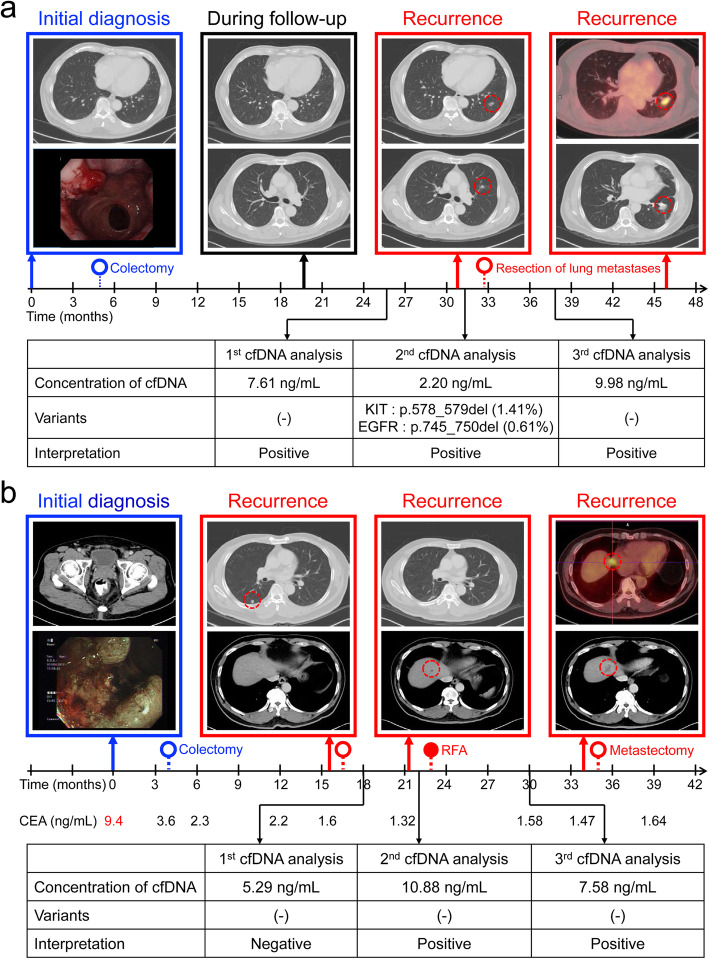Fig. 3.
Clinical benefits of the cfDNA assay in two CRC patients. a This patient had a rectal adenocarcinoma, which was treated with pre-operative concurrent chemoradiotherapy followed by a rectum colectomy and post-operative adjuvant chemotherapy. Recurrence with pulmonary metastases was detected 2 years after surgery of the primary tumor. The patient underwent resection of the pulmonary metastases with curative intent, and was treated with systemic chemotherapy for 3 months. The result of the 3rd cfDNA analysis was positive, although the imaging study at that time did not detect any recurrence. Later imaging revealed recurrent tumors around the surgical sutures of the left upper and left lower lobe. b This patient had pathological stage III rectal adenocarcinoma, which was treated with pre-operative concurrent chemoradiotherapy, rectum colectomy, and post-operative adjuvant FOLFOX chemotherapy for 6 months. Recurrence with pulmonary metastasis was detected 1 year after surgery of the primary tumor. The patient underwent complete resection of the pulmonary metastasis, and received salvage chemotherapy with bevacizumab in combination with FOLFIRI. Five months after the metastectomy, the imaging study revealed a new liver metastasis, which was treated with percutaneous radiofrequency ablation (RFA). Following RFA, the cfDNA concentration remained high, which indicated the presence of disease; however, the imaging study at that time did not detect any recurrence. A later CT scan revealed a recurrent tumor in the liver, adjacent to the previous ablation site

